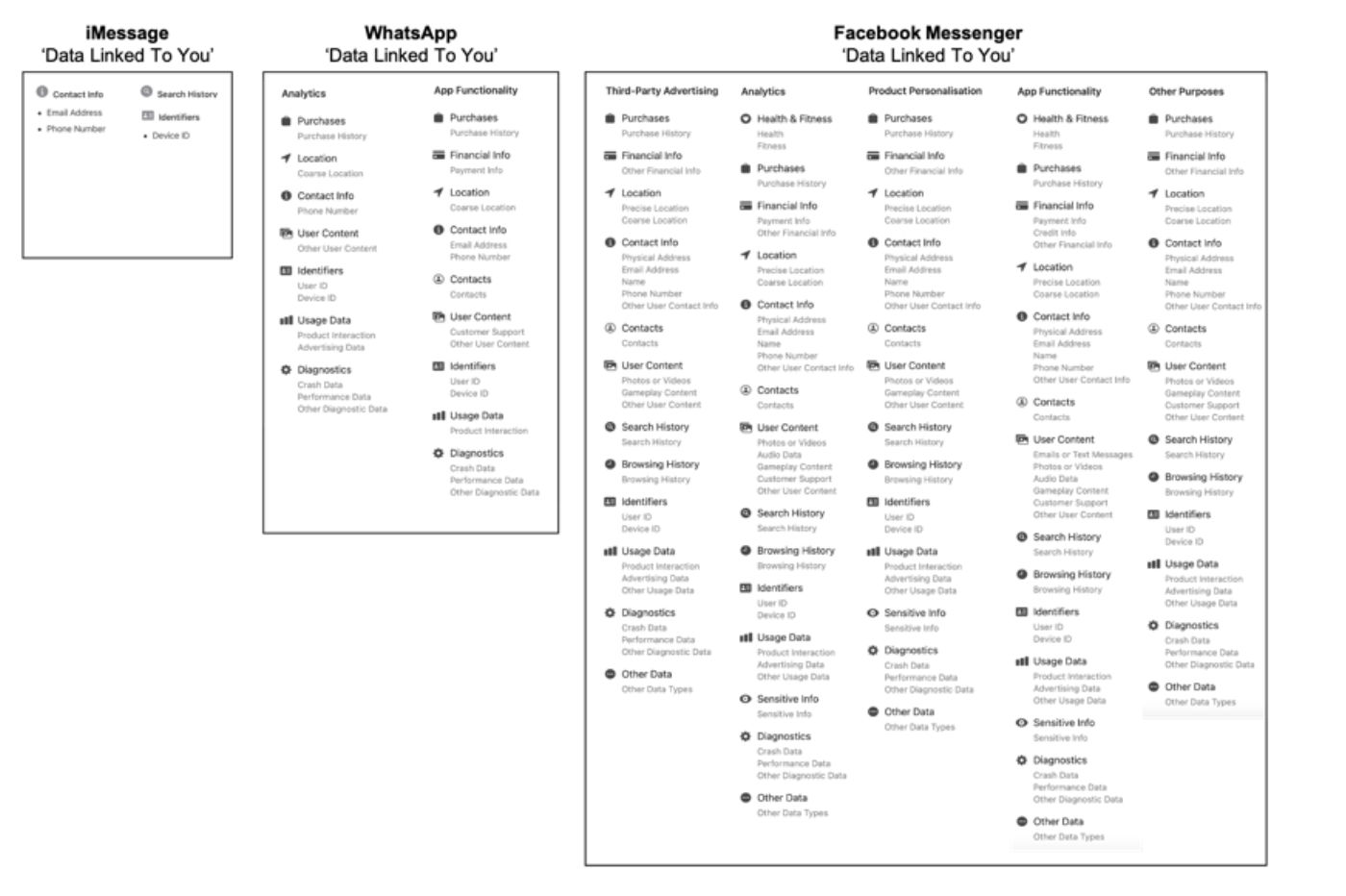While Apple has been publishing the privacy labels for each application for some time, Forbes journalists investigated what was hidden behind the broad terms used on these famous labels. They thus compared several instant messaging services in order to compare the use of personal data that each of them made.
If it is now common knowledge that the Facebook group has a more than pronounced interest in your personal data, it was not easy to realize all the information to which the Messenger application has access once that it is installed on an iPhone.
If some people think that all companies are subject to the same personal data, contacts, email, location... they are far from it. In fact, the Forbes survey showed that within instant messaging applications the difference could be abysmal from one application to another.
Facebook: the bad student of the group
In fact, in their investigation, the journalists listed the information requested by the Signal application, an anonymous messaging service which does not collect any information. Then the iMessage application, Apple's application, which collects some personal information: email address, telephone number, search history and reference of the device used.
Then the journalists looked at the Facebook group's two instant messaging services. WhatsApp in the first place,who complained a few weeks ago about these confidentiality labels, accusing them of not taking into account all the parameters, particularly with regard to the security of the data collected.
Regardless, the app cannot deny it, it collects much more personal data than iMessage. The list is growing and now includes information such as advertising data, purchase history, “rough” location, contacts, etc.
But ultimately, it is Messenger, the application created by Facebook, which collects the most personal information. The list is far too long to cite in full here, but all the personal data collected has been listed in this table (in English).

© Apple
Faced with this more than problematic picture for the Facebook group, the latter has already found its solution. Indeed, after having saidon the full page of many newspapersthat it was in the interest of small businesses and the “free internet” to continue to collect personal data, Facebook also used the argument of the security of this data. If the group does not deny collecting them, which would be quite difficult to defend, Mark Zuckerberg's teams say,at least on the front, that this data is very well protected and that it does not risk falling into the wrong hands.






![[edit: the winners] 4 licenses of the Sparrow email client on iPhone offered with iPhon.fr](https://cline.one/tech/ignace/public/Grobubu2/0212/.sparrow-iphone-2_t.jpg)